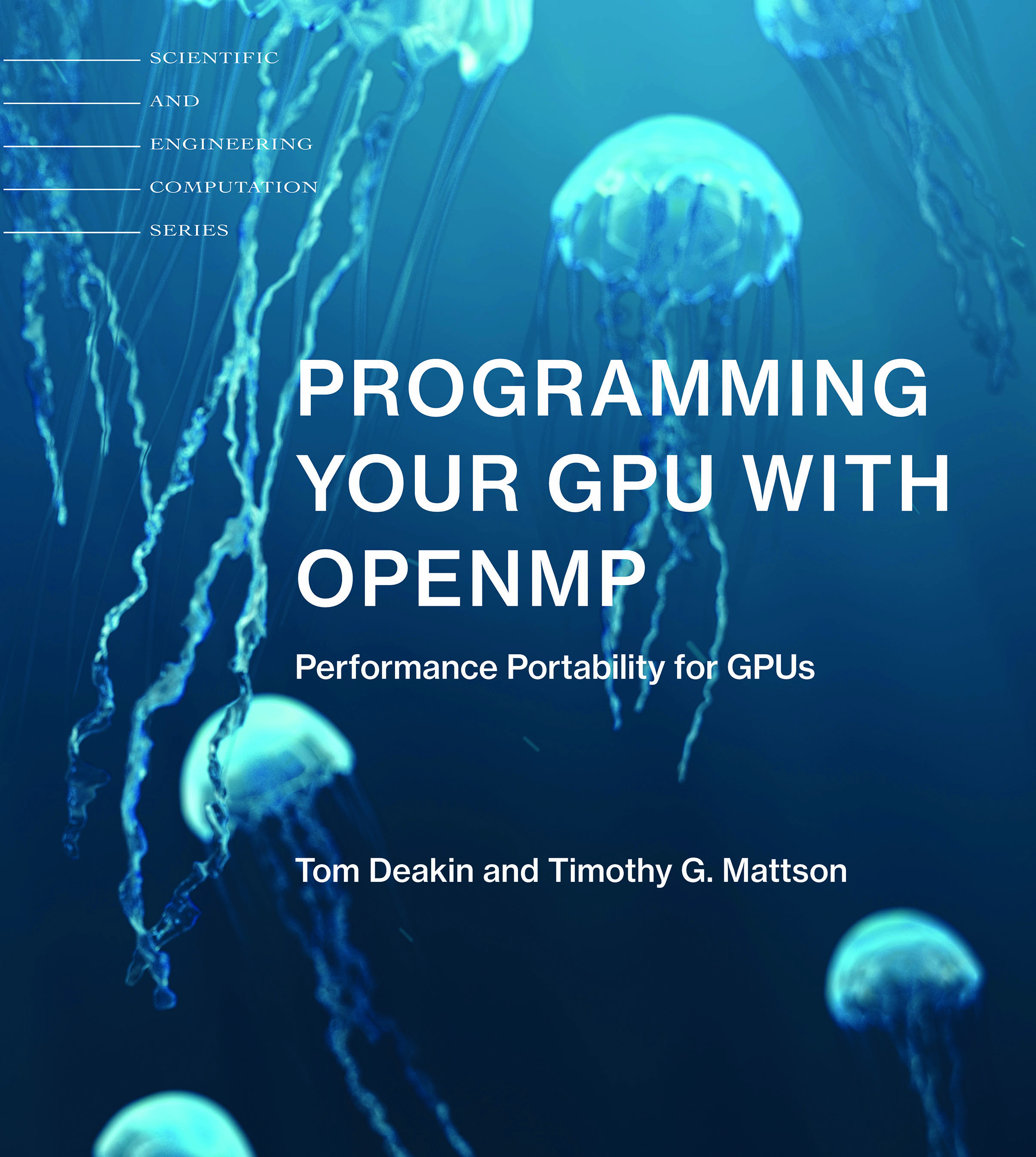
Programming Your GPU with OpenMP:
Performance Portability for GPUs
by Tom Deakin and Timothy G. Mattson
GPUs are a standard fixture in high performance computing systems. You just aren't a well rounded HPC programmer if you cannot write code that runs on a GPU. Unfortunately, the landscape of GPU programming models is confusing. There is CUDA, SYCL, HIP, OpenACC, OpenCL, and more. Compared with multithreading and cluster computing, where there are single dominant programming models (OpenMP and MPI respectively), GPU programming is just plain confusing. We believe the solution to this GPU-confusion is OpenMP.
OpenMP is widely supported across different GPU platforms. OpenMP, of course, also supports multithreading. It is unique among GPU programming models in that you can support multithreading and GPU programming from a single programming model. Given trends to combine GPUs and CPUs in a single package, this feature of OpenMP will help it displace other approaches for GPU programming. With luck, OpenMP for GPU programming will dominate the GPU software landscape and remove the confusion surrounding GPU programming.
You can program your GPU with OpenMP. This book will show you how, starting with basic constructs to map loops onto the GPU and then moving to more complex GPU programming with asynchronous computing across multiple streams of kernel executions. It's all here in the latest book to help you master OpenMP: Programming you GPU with OpenMP: Performance Portability for GPUs.